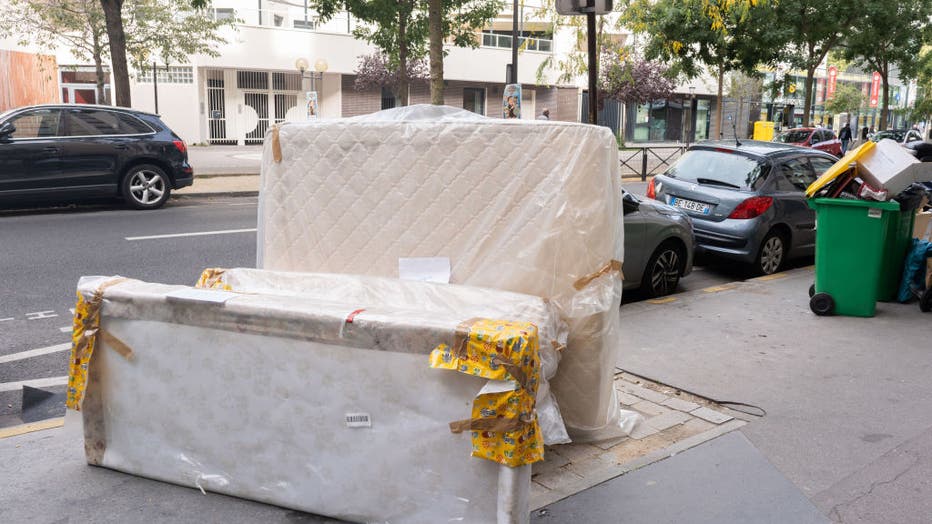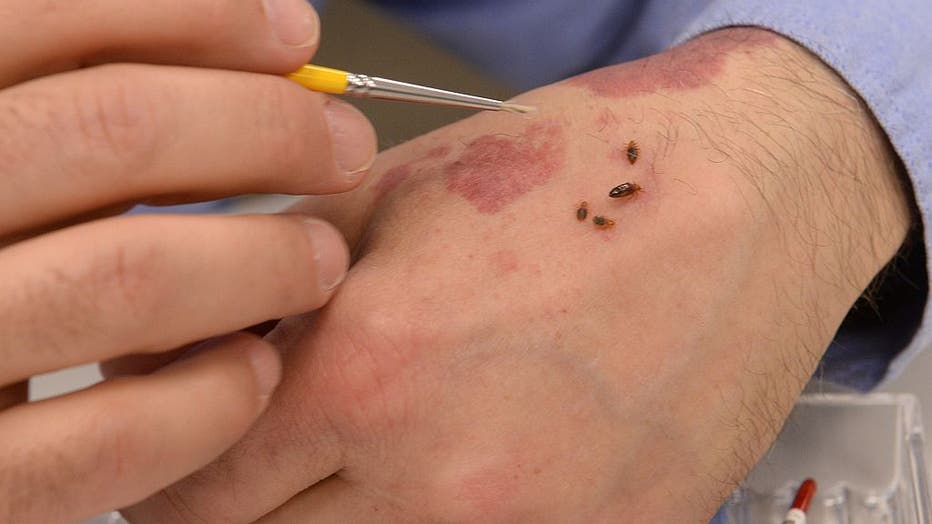Bed bugs: How to prevent the unwanted globetrotters

NYC bed bug complaints on the rise
As New York City tries to win its war against rats, an old, much smaller foe may be re-emerging. Bed bugs are back again in New York City. FOX 5 NY's Kendall Green has the story.
Bed bugs are world travelers.
The age-old curse on humans loves to frequent densely populated cities like New York, Chicago, and most recently Paris.
They creep, they crawl, and they feast on your blood as you sleep.
They ride first class via clothes, bags, and bedsheets to find the next person worth dining on.
According to Orkin, the more than a century-old American pest control company, New York ranks second on their list of bed buggiest cities in the U.S.
First up was Chicago and Philadelphia came in a whopping third, based on treatment data from metro areas where Orkin performed the most bed bug treatments (December 1, 2021 – November 30, 2022).
These bugs have most recently took on Paris by a storm--but the problem is that they're actually everywhere.
It is worth noting that Paris and New York are two of the most traveled metropolitan places in the world--by humans and bugs, one can assume.

A contaminated mattress and bed frame in the street awaiting garbage collection in Paris, France, on Thursday, Oct. 5, 2023. A rash of bedbug sightings across France is causing paranoia among travelers and becoming a sore spot for the government as P
Bed bugs
Bed bugs are typically 3/16 inches long, reddish brown and mostly nocturnal. They are also hematophagous, meaning blood is their only food source.
They are also known for their rapid population growth laying as many as five eggs a day and surviving several months.
Without any blood, "they can slow their metabolism and just wait for us," said Jean-Michel Berenger, an entomologist who raises bedbugs in his lab in the infectious diseases section of the Mediterranee University Hospital in Marseille. The carbon dioxide that all humans give off "will reactivate them … and they’ll come back to bite you."
But silence is a mistake, experts say. No social category is immune to finding bedbugs in their clothing, blankets or mattresses.
"It’s not at all a hygiene problem. The only thing that interests (bedbugs) is your blood," said Berenger, the entomologist. "Whether you live in a dump or a palace, it’s the same thing to them."
Orkin entomologist Ben Hottel, Orkin says, "while it’s important to be aware of bed bug infestations within hotels, practicing precautions in other aspects of travel are also important. Taxis, buses and airplanes are also common bed bug hiding places, allowing these pests an opportunity to hitch a ride with unsuspecting travelers. Examining clothing and luggage regularly while traveling can help to catch a bed bug infestation in the early stages," said Ben Hottel, Orkin entomologist.

American Museum of Natural History (AMNH) entomologist Louis Sorkin feeds bed bugs on his hand in New York, April 17, 2014. AFP PHOTO/Emmanuel Dunand (Photo credit should read EMMANUEL DUNAND/AFP via Getty Images)
How to prevent bed bugs at home
Although these bugs seem relentless, there are steps you can take to prevent them.
- Double check mattress tags, seams, baseboards, headboards and electrical outlets--when you move in, after a trip or after guests spend the night.
- Decrease clutter in your home and make it easier to spot them.
- Double check all secondhand furniture before bringing it home.
How to prevent bed bugs when traveling
According to Orkin use the acronym S.L.E.E.P. to prevent bed bugs while traveling.
- Survey the room you're staying in and be on th lookout for tiny ink colored stains.
- Lift and look unde mattresses, baseboards, and torn wallpaper
- Elevate luggage away from beds and wall.
- Examine luggage and bags carefully when repacking.
- Place dryer-safe clothing in dryer for 30 to 45 minutes after getting home from travel.
The Associated Press contributed to this report.

